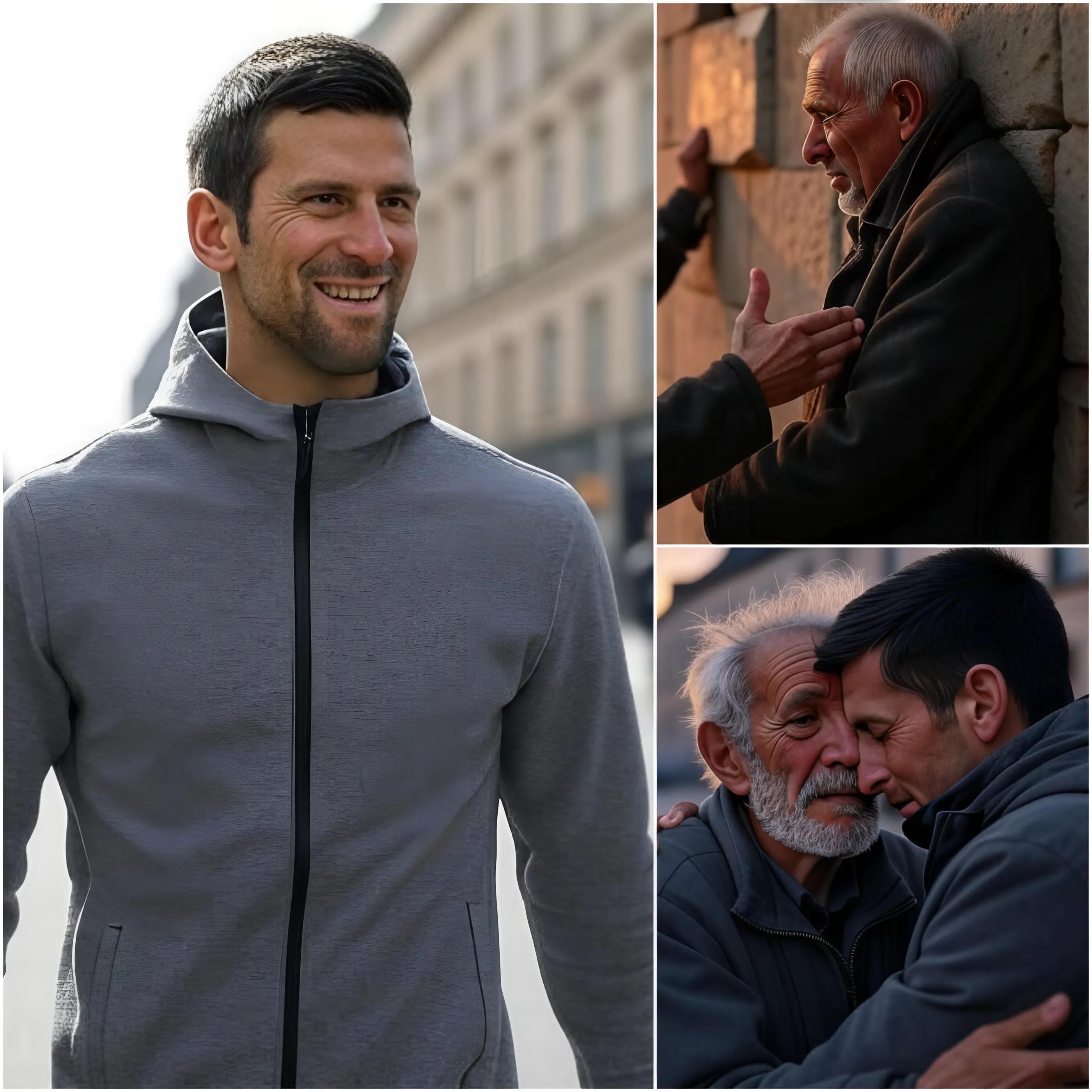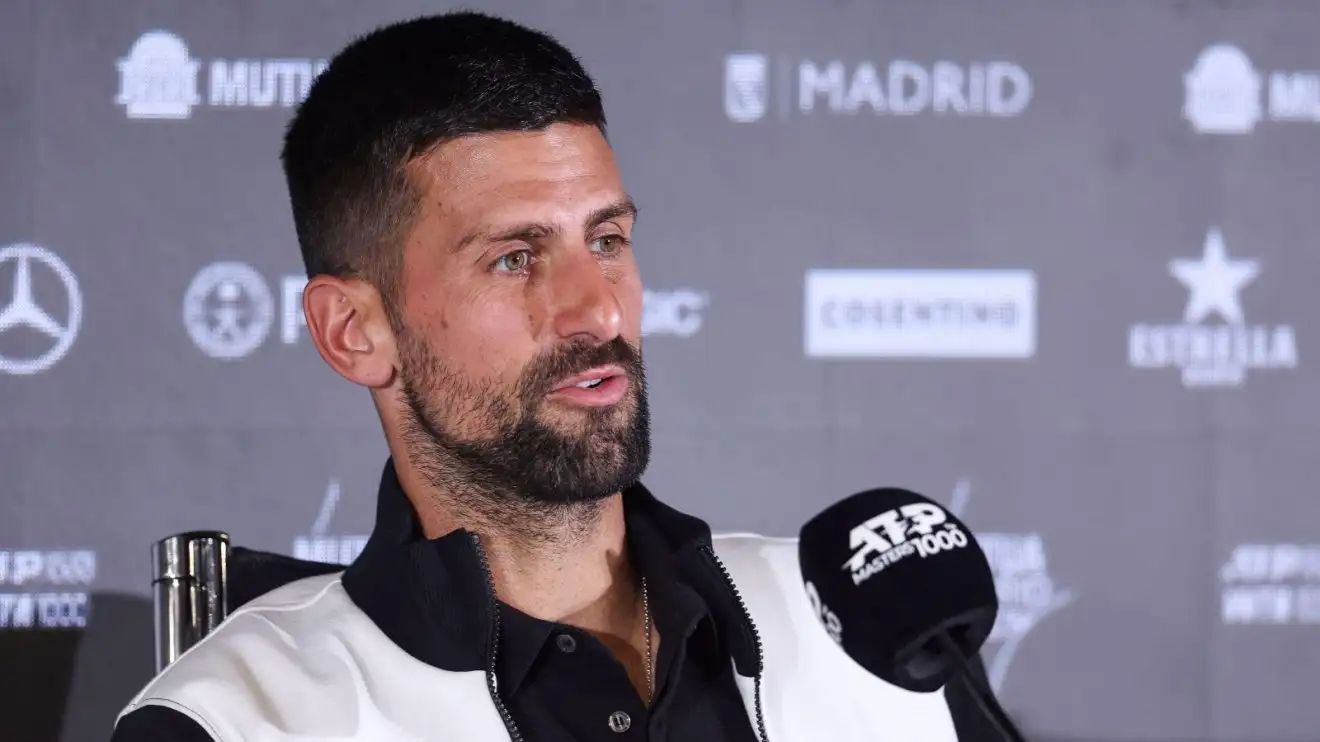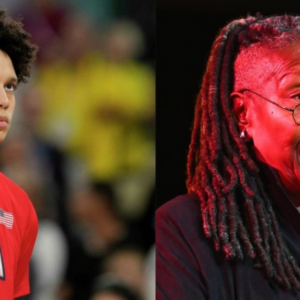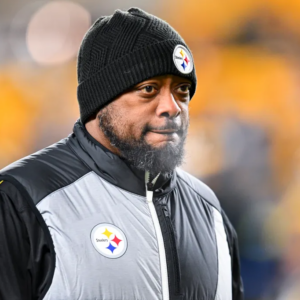Novak Djokovic’s Heartwarming Encounter with a Homeless Man Leaves Onlookers Speechless

Earlier today, tennis superstar Novak Djokovic made headlines in an unexpected way—not for his achievements on the court, but for a touching moment of human kindness on the streets. Just five minutes ago, while walking through a quiet street, Djokovic was approached by a homeless man who simply asked, “Can you give me a dollar?” What followed left witnesses speechless and deeply moved.
Djokovic, known for his athletic prowess, has also built a reputation for being grounded and compassionate. But no one expected what happened next. Instead of brushing the man off or reaching into his pocket for some spare change, Djokovic stopped walking, looked the man in the eyes, and smiled warmly. “What’s your name?” he asked, his voice calm and sincere.
The man, visibly surprised by the question, replied, “James.”
Djokovic then did something that stunned everyone nearby. He took off his backpack, sat down on the curb beside James, and started a conversation. He listened as James told him about the hardships he had been through—losing his job, then his home, and struggling every day just to survive. Djokovic sat quietly, nodding and offering gentle words of support.

After several minutes of conversation, Djokovic reached into his bag—not to give James a dollar, but to hand him a fresh sandwich and a bottle of water. Then he pulled out something unexpected: a clean T-shirt and a pair of socks. “I always carry a few extra things when I travel,” he said, “because you never know who might need them.”
People walking by began to gather at a distance, whispering among themselves and taking out their phones—not to film the moment, but to simply take in the rare sight of a global sports icon taking time to connect with someone society often ignores. There were no bodyguards pushing people away, no press in sight. It was just Novak and James, two human beings sharing a quiet moment.
But Djokovic didn’t stop there. He asked James if there was a nearby shelter where he could go. When James said he hadn’t had luck finding a place to stay, Djokovic made a phone call. Within a few minutes, someone from a local outreach organization arrived. Djokovic spoke with them briefly, handed over a discreet envelope—its contents unknown—and shook James’s hand.
As the helper from the outreach organization guided James away, Djokovic stood up, dusted himself off, and continued walking as if nothing extraordinary had happened. He didn’t wait for applause. He didn’t look for cameras. He simply did what came naturally—he showed kindness.

This small but powerful act was a reminder that greatness is not only measured in trophies and records, but also in compassion and empathy. In a world where many turn away from those in need, Djokovic turned toward one, offering more than just money. He gave time, dignity, and hope.
Witnesses were deeply moved, some with tears in their eyes. “I’ve always admired him as an athlete,” one passerby said, “but now I respect him even more as a person.”
This encounter will likely never appear on a scoreboard or sports broadcast, but for James and those who saw it unfold, it was unforgettable. Djokovic’s reaction proved that being a champion extends far beyond the tennis court. Sometimes, the most meaningful victories are the ones no one sees—except the person whose life you’ve touched.





